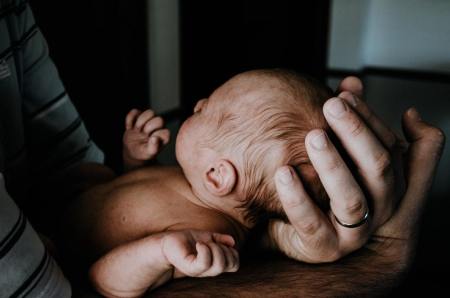Signs of ‘baby boomlet’ emerge despite pandemic

Despite data released earlier this year pointing to significant drops in birth rates in several states across the country, new data cited by the Institute for Family Studies suggest a “baby boomlet” could be on the horizon thanks to pandemic-related benefits and shifts to remote work.
Analysis by IFS researchers Brad Wilcox and Lyman Stone show that while births fell 9.3% across the U.S. in January, by March 2021 births had returned to their March 2020 levels and government stimulus payments, unemployment benefits and extend remote work policies might have given families a boost of confidence to start having more babies again.
“The specific details about how much various states are recovering are less important than the general trend: across numerous states, births are rebounding to nearly 2019 levels very quickly. Given that lockdowns and other policy measures, high unemployment, and excess deaths from COVID-19 persisted long past April 2020, and indeed to the present day, this is an astonishing outcome,” the researchers wrote.
“There’s a plausible theory about why this birth rebound happened so fast. In this theory, the summer of 2020 was also a time when the country began to realize two key facts: first, that the pandemic was probably going to go on for a long time, with many, recurrent waves, and second, that some of the changes the pandemic brought were very helpful to families,” they continued.
“Specifically, many people probably noticed that their bank accounts were doing all right, even if laid off, thanks to stimulus checks and generous unemployment benefits. These benefits created a unique opportunity for families to take a pause from working and have a long-delayed baby,” they added.
Lyman and Wilcox argued that pandemic-related benefits and work changes further “created de facto baby bonuses and paid leave programs for a lot of (former) workers” in a country where maternity leave is also rare.
“Despite huge social challenges and a raging pandemic, and despite school and child care closures making the job of parenting much harder, the straightforward remedies of giving families cash (per person in the household and especially per child), as well as nudging employers to provide more flexibility, seem to have helped lead to a rapid ‘normalization’ of fertility. Policymakers should pay attention to this experience and learn a valuable lesson. The baby boomlet we’re now seeing in hospitals across the country suggests pro-natal policy works,” the researchers argued.
A Brookings Institution report reiterated an initial projection that the coronavirus pandemic would result in at least 300,000 fewer births in 2021. Data gathered by NBCLX from December 2020, when the first babies conceived during the pandemic were born, showed signs of significant decline.
Compared to the same period a year earlier, a number of states that keep track of their births in near-real-time, such as Florida, reflected significant birthrate declines in December 2020. Ohio showed a decline of 7%, the Arizona birth rate fell by 5%, while in Florida, the drop was 8%.
“This is a bad situation,” Philip Cohen, a sociologist and demographer at the University of Maryland, told NBCLX. “The declines we're seeing now are … pretty substantial.”
Cohen’s research also showed declines in Google searches for pregnancy and sex-related topics and predicted the decline would likely last for months due to the economic uncertainty and other factors fueled by the pandemic.
“People make longterm decisions when they have confidence about the future, and if there's anything that undermines confidence about the future, it's this massive pandemic,” the demographer said.





















